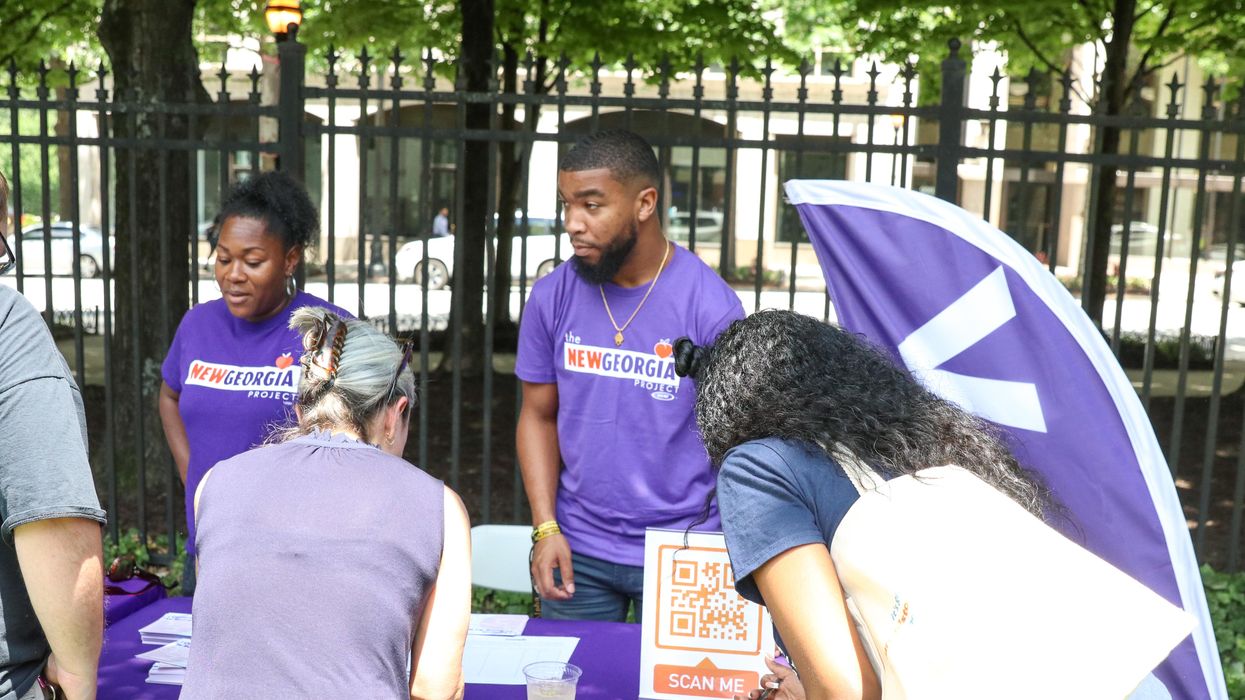Kluver, a rising sophomore at George Washington University, is an intern with the Smithsonian’s National Museum of American History and Made By Us.
If I asked a random person on the street today, “What are your voting plans for the midterm elections in just a few months?” I would probably receive strange looks. People would respond, “What’s that?” Or some would likely say, “There’s no point in voting as my voice doesn’t matter anyways.”
But FiveThirtyEight found that 60 percent of people who “rarely or never vote” said the 2020 presidential election results really mattered to them. So why aren’t they turning out to vote?
For years, Americans have been subjected to one of the most malignant cases of voter apathy in any liberal democracy. Candidates and parties ignore voters and take them for granted. Turnout barely cracks 55 percent in presidential elections, and 40 percent in midterms. Yet, many elections are decided by mere hundreds of votes, meaning an individual's vote actually can change the outcome.
Young people have become the face of this stereotype. They are often portrayed as lazy or apathetic, and those who do vote are presumed to be bastions of the Democratic Party and progressive principles. However, this is not necessarily the case. In my internship this summer with the Smithsonian and Emerson Collective, I got an up-close view of how people 18-30 years old engage with history and civics through Made By Us, and I knew there was more to the story to explore. Luckily, a new report from CIRCLE at Tufts University has a wealth of data, FAQs and explainers to back it up.
For example, the 2018 midterm elections saw people 18-24 years old vote at a record 28 percent, almost double from 2014, with said percentage expected to increase as more of Generation Z comes of voting age.
The real issue lies in systemic barriers to voting. Among a sample of voting-age Gen Z who did not vote, 30 percent of youth of color said they had issues with presenting voter identification at the polling place — double the rate of white respondents. The same goes for those who had difficulties finding transportation to polling places or faced long lines; youth of color were noticeably more impacted. And 39 percent of those polled overall simply did not know where to vote.
More barriers exist for the non-college educated. As of 2016, those without any college degree were 20 percent less likely to vote than their peers who attended college. Similar gaps are shown between youth of color and white youth as between non-college-educated and college-educated youth. Non-college educated young people are subject to long lines, lack of transportation, voter ID issues and so on. Plus, media reinforces these principles, often failing to address the sheer importance of youth participation in democratic processes.
Young people are engaged, fired up and ready to shake the system to the core. But we need to build a system that supports their voting activity and knowledge. So, what can we do to solve this? The answer is civic education – built for real life.
Generation Z remains civically engaged using one primary tool: technology. In 2020, according to CIRCLE, over 50 percent of Gen Zers said they tried to convince peers to vote, often by sharing online petitions and other resources for their peers to see. This marks a 17 percent increase from just four years prior. Even then, there exists a large gap between youth who are registered to vote and those who actually turn out. They’re registered and they’re telling friends to vote, but turnout is still lagging. We need to find ways to make voting feel meaningful, fun and effective.
Let’s start by looking at areas of life Gen Z isn’t skipping out on: school, friends and online communities. Increase investment in civic education programs in high schools teaching students about parties, candidates and the electoral system. Have every eligible student register to vote in class — online! Provide them the resources through social media (especially digitally) to request ballots, find polling places and research candidates. Have their favorite celebrities, Twitch streamers and idols reinforce the importance of voting. If young people have educational resources provided to them in the format they are most versatile in, maybe American society will start to see real change, one youth vote at a time.



















Trump & Hegseth gave Mark Kelly a huge 2028 gift